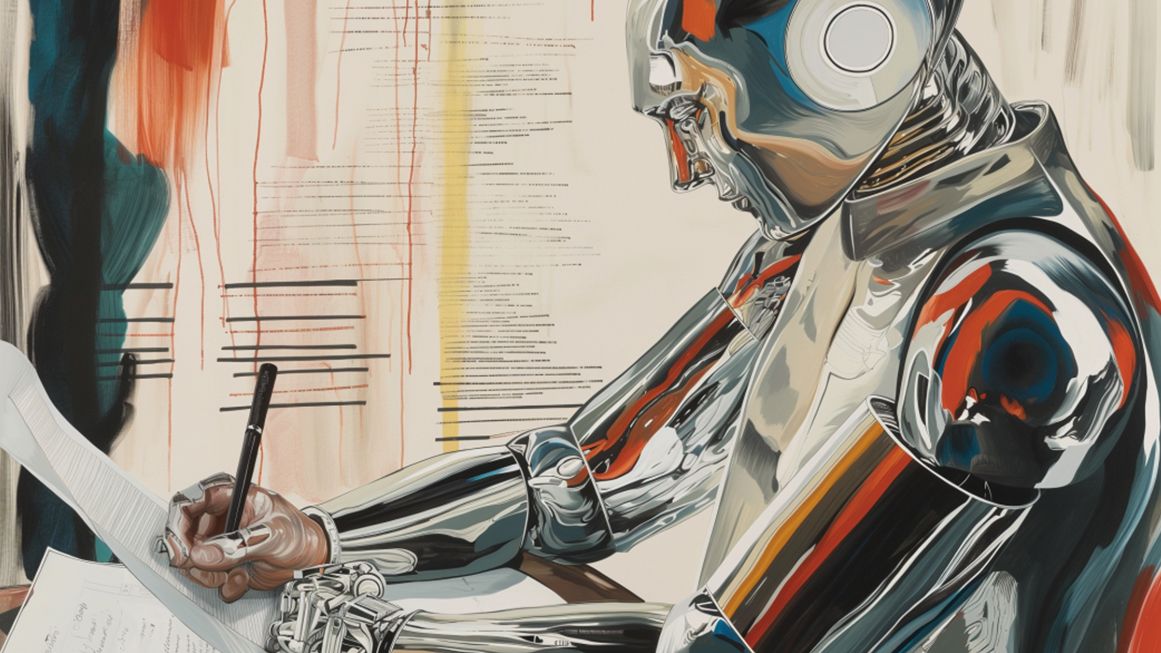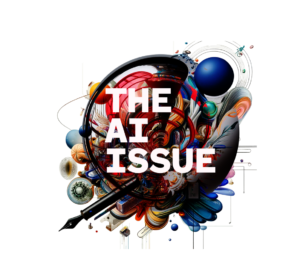AI Can Do Paperwork Doctors Hate
With help from artificial intelligence, doctors can focus on patients.


Everyone dreads doctor's appointments. After navigating a maze of scheduling hurdles, patients find themselves waiting 26 days on average to see a physician in major cities. The whole ordeal culminates with patients twiddling their thumbs in office waiting rooms for 20 minutes (on a good day) before getting to see the doctor for 10 minutes (on a good day).
Luckily, artificial intelligence is already starting to solve some of these logistical headaches to improve both a doctor's productivity and a patient's experience. Companies such as Nabla and Glass Health have created products that utilize AI to help doctors give the type of care they know patients want and deserve.
The burden of medical record keeping has always fallen to physicians. When electronic health record (EHR) and electronic medical record (EMR) systems started popping up in the 1960s and 1970s they were too expensive for most practicing physicians to adopt. As the U.S. entered the digital age, abandoning handwritten medical records made sense, but the electronic record-keeping systems in place were far from perfect. That did not stop the federal government from basically forcing doctors to adopt these systems in 2009 by tying increased Medicare and Medicaid reimbursements to practices who demonstrate "meaningful use" of electronic record-keeping systems.
Now physicians dedicate a significant portion of their day, exceeding four hours on average, to managing and updating EHRs. To meet these documentation demands, doctors often resort to late-night "pajama time" to finalize EHR updates long after their workday has ended. Jeffrey Singer, a surgeon and senior fellow at the Cato Institute, has argued that EHRs are a distraction for doctors, hindering their ability to effectively care for patients.
Many physicians even cite EHRs as the most stressful aspect of their job. It's no surprise EHR documentation has also been linked to physician burnout. This excessive administrative burden significantly hinders the quality of patient care. A doctor's time is crucial and limited, and record keeping is stealing valuable minutes away from face-to-face patient interactions.
To get doctors to "enjoy care again," Nabla, a digital health startup, in March 2023 launched Copilot, an ambient AI scribe for physicians. The adoption process for doctors is simple: Just download the Copilot extension for the Google Chrome web browser, and the AI will do the heavy lifting in the background. It will work with the computer's built-in microphone to take clinical notes during patient visits and will automatically update the patient's health records.
Copilot fully integrates with EHRs and also makes it possible for doctors to share straightforward, distilled notes with patients after visits—which means the days of trying to remember a doctor's instructions may soon be behind us.
Information security concerns about the app are minimal, since Copilot does not store audio, transcripts, or notes and is compliant with the Health Insurance Portability and Accountability Act (HIPAA) and the European Union's General Data Protection Regulation (GDPR). The company claims that the fine-tuned models provide highly accurate outputs, with only 5 percent of the notes requiring adjustments.
They also promise that Nabla Copilot saves doctors, on average, two hours a day on clinical documentation. In a little over a year, more than 30,000 practitioners are already using Copilot. Nabla's CEO, Alex LeBrun, formerly at Meta, tells Reason that after 4 million encounters, not once has a patient stopped their doctor from using Copilot. In fact, many patients are pleased to learn that their doctors are staying up to date with the latest innovations in health care.
Glass Health, co-founded in 2021 by Dereck Paul and Graham Ramsey, a former engineer at Modern Fertility, was originally created as a "notebook physicians can use to store, organize and share their approaches for diagnosing and treating conditions." The company has now pivoted to embrace the generative AI revolution.
By feeding their large language model (LLM) thousands of peer-reviewed studies and evidence-based clinical guidelines, their AI is able to create treatment plans and make diagnosis suggestions. The distinction between having an artificial intelligence supporting clinical decisions and making clinical decisions is crucial. The latter scenario opens an ethical can of worms and would likely trigger stricter regulations from the Food and Drug Administration.
Artificial intelligence thrives in a scenario where it can track patterns and build off of algorithms. Not every patient diagnosed with Crohn's disease is anemic. Not every diabetic experiences swelling of the feet. AI could potentially overlook crucial details that would change a patient's treatment plan. As Singer says, "the danger is that patients vary," highlighting why doctors "should not surrender decision making to the robot." AI's role in medical decision making will continue to evolve, but for now it's only augmenting the expertise of health care practitioners.
The global AI health care market was valued at over $20 billion in 2023 and is projected to be worth $187 billion by 2030. As more sophisticated LLMs come online, AI's role in health care will continue to grow beyond just making paperwork processes easier. It's already being tested in a variety of advanced ways such as reading X-rays, screening for skin cancer, and analyzing patterns in a patient's medical history to predict potential health risks.
AI may still be a long way from replacing doctors entirely, but in the near future, it can help eliminate the worst part of the job for many doctors—and let them get back to building relationships with their patients.


Show Comments (37)